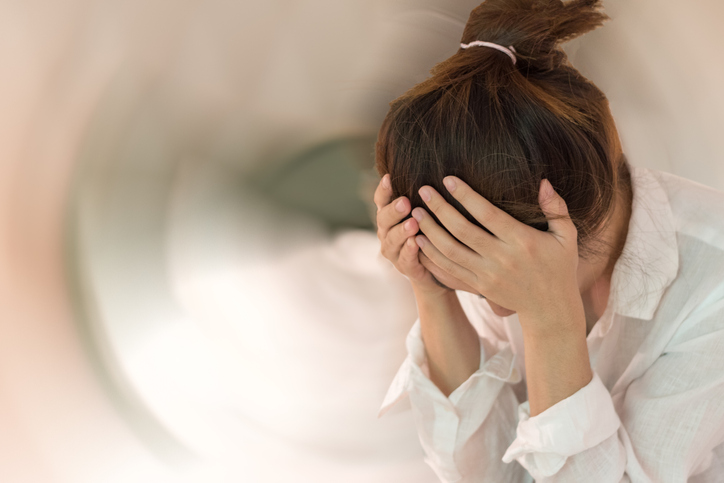You might have a balance issue if you’ve been feeling lightheaded or having trouble keeping your balance and may need a balance disorders treatment. Numerous medical issues can lead to balance disorders, but the good news is that treatment is available. Determining when to seek therapy might be aided by being aware of the symptoms of a balance condition. This post covers seven typical symptoms that indicate you need balance disorder treatment.
1. DIZZINESS
One of the most prevalent indications that you may require therapy for a balance condition is dizziness. It’s a faint, dizzy, or unsteady feeling that may accompany nausea and difficulty focusing. Heart issues, low blood pressure, pharmaceutical side effects, and inner ear infections may bring on these episodes of vertigo.
Also, they can be brought on by stress or dehydration alone. Make sure you visit a doctor if you frequently feel dizzy to help identify the cause. Your doctor could advise making some lifestyle adjustments or using a few drugs to help you manage your symptoms, depending on the underlying problem. People with balance difficulties should seek treatment to avoid falls and other problems.
2. LIGHTHEADEDNESS
Lightheadedness is a fainting or dizziness sensation that a balance issue can induce. If you frequently feel lightheaded, it could indicate that you have an underlying balance condition and should get therapy. This symptom can be minor to severe and is frequently caused by standing up too rapidly or not eating enough throughout the day.
Other reasons for lightheadedness include dehydration, low blood pressure, low iron levels, and low blood sugar levels. Lightheadedness can strike quickly, making you faint or extremely sensitive to bright lights and loud noises. Vertigo and nausea are other side effects that may occur with lightheadedness. You should discuss potential therapies for balance disorders with your doctor if these symptoms last longer than a few minutes or worsen over time.
Both dizziness and lightheadedness might occur due to the following:
- Psychiatric problems
- Abnormally rapid breathing accompanied by anxiety disorders
- Inner ear problems
- Psychiatric disorders
- Medications
3. UNSTEADINESS
Unsteadiness is a typical ear balance symptom. If you experience instability, it’s probable that an issue with the inner ear is what is causing your balance impairment. You can feel the ground shifting beneath your feet, making it challenging to maintain balance. Additionally, when standing or moving about, particularly in strange settings or when changing your gaze, you could experience unsteadiness.
Unsteadiness when walking might occur due to vestibular problems, nerve damage to the legs, and neurological conditions, such as spondylosis. Vision and joint or muscle problems can also cause unsteadiness.
Getting medical help as soon as possible is crucial if your unsteadiness persists. To identify any underlying conditions and suggest an appropriate course of therapy, your doctor can perform a complete examination. You can regain your sense of stability and control over your life with the appropriate treatment and assistance.
4. FALLING OR FEELING LIKE YOU MIGHT FALL
Constantly feeling unsteady or like you’re going to fall is a common symptom of a balance condition. Sometimes it’s just a little unsteadiness, and other times it can be so bad that you really feel like you’re about to fall over.
When standing or walking, if you experience swaying, staggering, or difficulty maintaining your equilibrium, it may be a sign that you require medical attention for a balance condition. It’s crucial to consult a doctor who specializes in balance difficulties if you start having episodes when you feel like you might repeatedly fall or without any notice.
5. VERTIGO
It can be challenging to explain and define vertigo, a common symptom of balance issues. When you’re standing motionless, it may feel like the room is spinning or that you are moving. It may also manifest as a sense of confusion or the inability to maintain eye contact while feeling as though the environment is swaying or spinning.
There are several causes of vertigo, including:
- Migraine
- Head injury
- Persistent postural-perceptual dizziness
- Persistent postural-perceptual dizziness
- Benign paroxysmal positional vertigo (BPPV)
It’s critical to get treatment for balance disorders from a licensed healthcare professional if you have vertigo. Meniere’s disease, BPPV, and vestibular neuritis are a few balance diseases that can result in vertigo. Medication, physical therapy, dietary changes, and surgery are all possible forms of vertigo treatment.
6. BLURRINESS
Another common sign of a balance disorder is Blurriness. People who experience this symptom may feel as though their vision is foggy or blurry, and they have trouble focusing on objects. Blurriness can be caused by issues with the eyes or inner ear related to balance. If you’re experiencing any type of blurriness, it’s important to get your vision checked and consult a doctor about potential balance disorder treatments.

7. CONFUSION
One typical indication of a balance issue is confusion. A balance condition can make you feel disoriented and make it hard to think straight, focus, and make decisions. You should get help if you are having trouble focusing or understanding your environment because this could signify that you have a balance condition.
Uncertainty brought on by a balance issue can show itself in various ways, including difficulty making straightforward judgments, memory loss linked to recent conversations or events, or a generalized sense of confusion. Seek therapy for your balance condition as soon as you notice these symptoms. A healthcare professional can assess your symptoms’ severity and can then create an effective treatment strategy.
TRATMENT FOR BALANCE DISORDERS
Treatment for any balance disorder depends on the cause of the condition, and they include:
- Balance retraining exercises
- Positioning procedures
- Medications, such as ear balance treatment medicine
- Surgery
Dietary adjustments are frequently advised to relieve symptoms if you suffer from balance difficulties brought on by Meniere’s illness or migraines. You might need to cut back on salt intake and steer clear of other food triggers like caffeine, alcohol, and particular additives. In the event that postural hypotension occurs, you might need to increase your fluid intake or wear compression stockings.
MADISON RICHARDSON OFFERS THE BEST BALANCE DISORDERS TREATMENT
You can regain your equilibrium with the aid of treatment for balance issues. However, the facility you select for your balance disorder treatment is quite significant. Working with a reputed doctor like Dr. Madison Richard is something you should aim towards. He has a remarkable 40 years of experience treating illnesses relating to balance issues. Contact Dr. Madison to discuss your balance condition and receive treatment.

